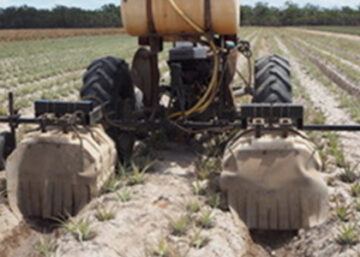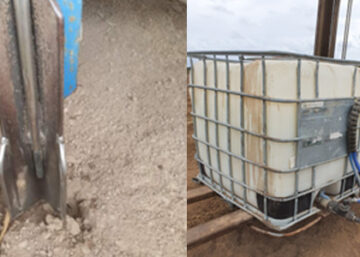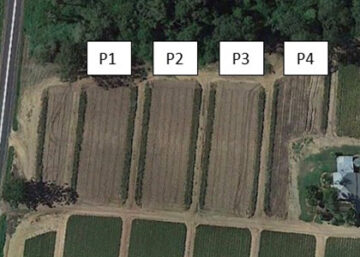Research topic 1: Site Selection Layout and Drainage
Research topic 5: Management Erosion and Sedimentation
Trial number SA01WB-02 and SA05WB-02
The pineapple industry is located in the coastal areas across Queensland for its warm climate, well-drained soils and limited exposure to cold winters and frost. There are a number of risks associated to these coastal regions due to their close proximity to sensitive environmental areas such as the Great Barrier Reef and Moreton Bay Marine Park. These coastal areas are renowned for their tropical climates with high annual rainfalls and predominantly sandy loam soils which are more prone to erosion.
The key issues of concern is off-farm deposition of sediment, pesticide and nutrient. Sediment is the key component which has been identified as a primary element impacting aquatic species and their habitats. Sediment deposited onto reefs can smother corals and interfere with their ability to feed, grow, and reproduce. Sediment can also act as a carrier for pesticide such as Diuron. Pesticides such as Diuron directly kill marine vegetation such as sea grasses which are the fundamental parts of the food chain. Excessive nutrient such as nitrogen can give rise to vegetative species that have a negative impact in aquatic environments such as blue green algae. It is important for pineapple farmers to manage the movement of soil and water across the farm and to capture and treat run off.
This demonstration focuses on fundamental soil erosion management strategies to mitigate soil loss infield and outfield with focus on block layout and drain stabilisation.
OBJECTIVE
To quantify the amount of soil erosion using different block layouts and observe different erosion preventative strategies to manage surface water flow and mitigate off-farm sediment deposition in outfield areas across the farm.



